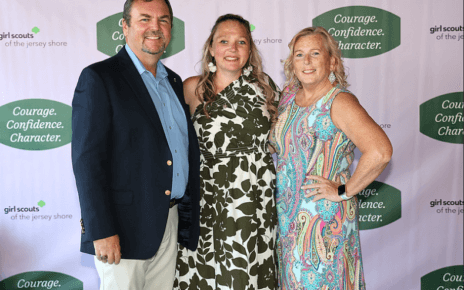Over 700 attendees gathered for the Jersey Matters Town Hall: The Heroin Crisis to address the states heroin epidemic in Pollak Theatre on Mar. 16.
There are roughly 128,000 heroin users in NJ, and the epidemic claimed 918 lives in 2015, which is the highest annual death toll from heroin ever seen in NJ according to an article by the Observer published on Jan 8.
Drug overdoses in NJ jumped overall by 21 percent between 2014 and 2015 according to the article, and health experts in the state expect the data from 2016 and 2017 to be far worse than the current numbers.
The event was co-sponsored by WJLP Me-TV, the Asbury Park Press, and the Discovery Institute, and included many individuals from various backgrounds who were touched in some way by the heroin epidemic; including Attorney General Christopher Porrino, actress and former heroin addict Mackenzie Phillips, other former addicts, their family members, attorneys, and medical practitioners.
One panelist included Stephanie Oswald, the mother of Andrew Oswald III, who died of a heroin overdose at the age of 23. During the event Oswald shared why she made sure that the cause of her son’s death was explicitly made known on his obituary.
“Enough is enough, it shouldn’t be a dirty little secret. People need to know why these kids are dying. My son meant everything to my husband and I, and when this happened I couldn’t let him die in vain,” said Oswald.
Actress Mackenzie Phillips flew to NJ for the event. She explained how getting caught with a bag of heroin at Los Angeles International Airport in 2008, saved her from her addiction.
“One of the important missions that a University fulfills is being a resource for its surrounding community,” said University President Grey Dimenna, who attended the event. “Monmouth was very proud to be able to provide a setting for the many experts who appeared that night to help educate the public on the concerns and issues surrounding the heroin epidemic which is a major challenge facing our society.”
Bob McAllan, town hall host and board member of WJLP, said, “We at WJLP believe in the commitment that TV stations have to better the societies we serve in, so it was a no brainer to do the heroin crisis. If you look at the numbers, NJ is ground zero in regards to the heroin crisis.”
According to McAllan, people commonly get involved with heroin through prescription drugs which can lead to an opioid addiction, and then turn to heroin because it’s cheaper and readily available. Opiate pain medications cost the uninsured about $1 per milligram; so a 60-milligram pill will cost $60. Therefore, the equivalent amount of heroin can be obtained for about one-tenth the price, according to an article by CNN published in June 2016.
“The average age of a heroin user is after college early twenties, between the ages of 24 and 34, so it is not just college kids that are being entrapped by this drug,” said McAllan.
Roger Desch, Executive of the Discovery Institute, was a panelist at the town hall. The Discovery Institute helps addicts from around the Garden State in detox and recovery. “We are at the frontlines of the epidemic,” he said.
According to Suanne Schaad, the University’s Substance Awareness Coordinator, students at Monmouth are not immune to the heroin epidemic. “We do have some students who are abusing opiates and in the Office of Substance Awareness we provide free and confidential counseling for students. We have been successful in assisting students with access to detox and inpatient programs to address their use,” said Schaad.
“Opiate abuse is not the top drug of abuse I work with students on, but it does happen occasionally. I also have a number of students I work with who have lost a friend or family member due to an overdose,” she added.
The state government has passed laws to curb the rate of drug overdose deaths within the state. On Thursday, Mar. 23, a bill was passed by the state Assembly which makes
Narcan, a medication that reverses an opiate overdose, available at pharmacies without a prescription.
In 2013, Christie signed a law allowing police officials access to Narcan. The Monmouth University Police Department (MUPD) carries Narcan in every car and is trained to administer it.
According to drugfree.org, the 2013 law also provides amnesty for anyone who calls for emergency aid for themselves, or a person they are with who is overdosing. According to Schaad, this reduces the fear of a legal charge and helps save lives.
Desch asserts that students can stay clear from heroin by making smart decisions. He said, “Students should not get involved with gateway drugs, and they must refuse prescriptions with opiates.”
The town hall aired on WJLP Me-TV in northern NJ, and on KJWP Me-TV in southern NJ on Friday, Mar. 24 at 8 p.m., and re-aired throughout the weekend. According to representatives at WJLP, the event will eventually be posted on their YouTube page and website.
“Monmouth University was a wonderful place to hold the event,” said, McAllan. “The people we worked with at the theatre and the acting President were incredibly professional. I can’t tell you how great they were; I think we will have more news events like this in the future.”
According to Schaad, a similar event titled, Responding to the Heroin Epidemic in Monmouth County, will be hosted by the Monmouth Medical Center in the Pollak Theatre on April 26.
PHOTO COURTESY of Kimberly Kravitz



